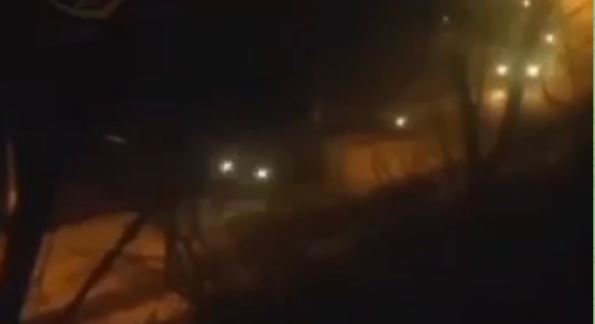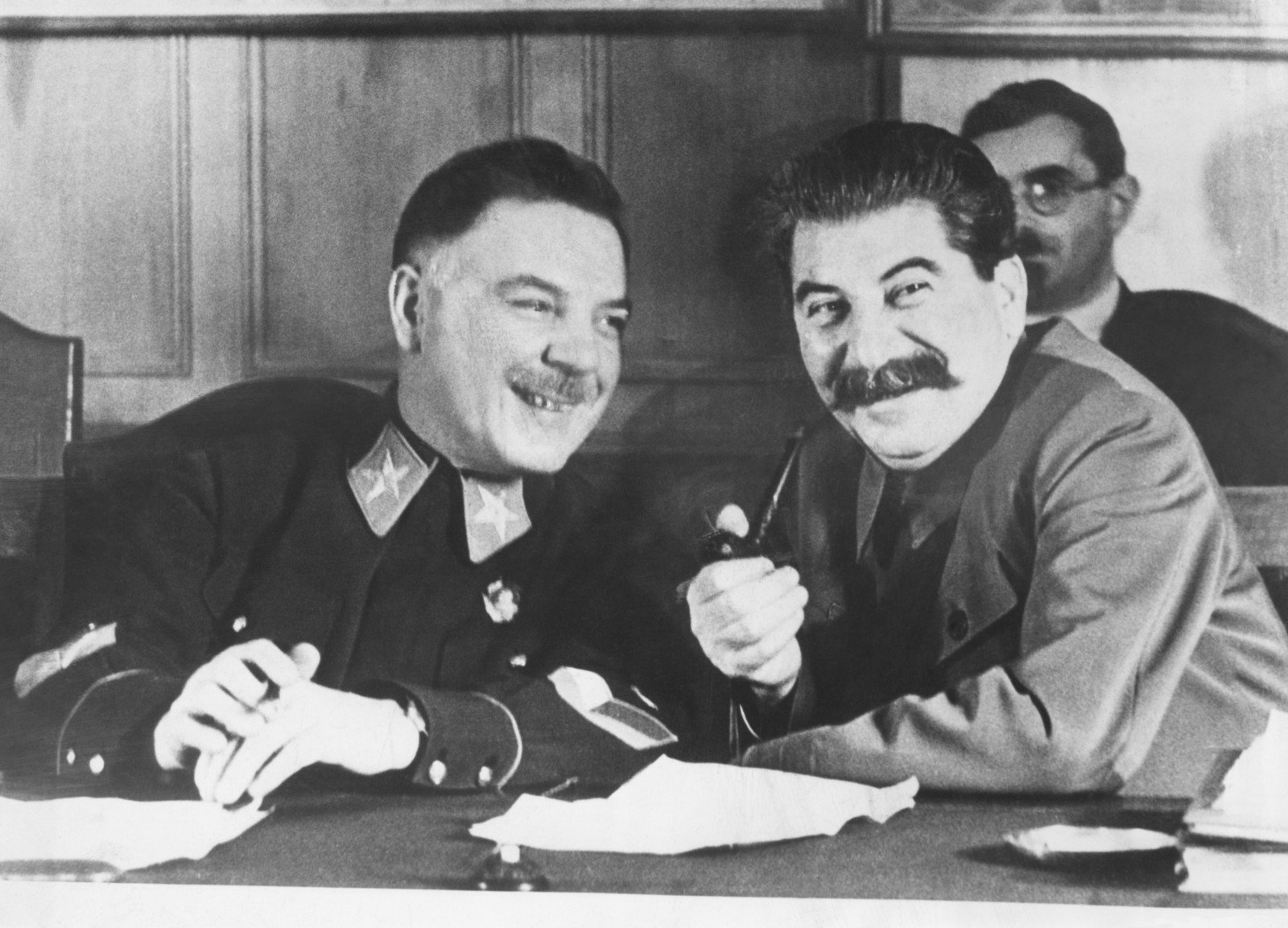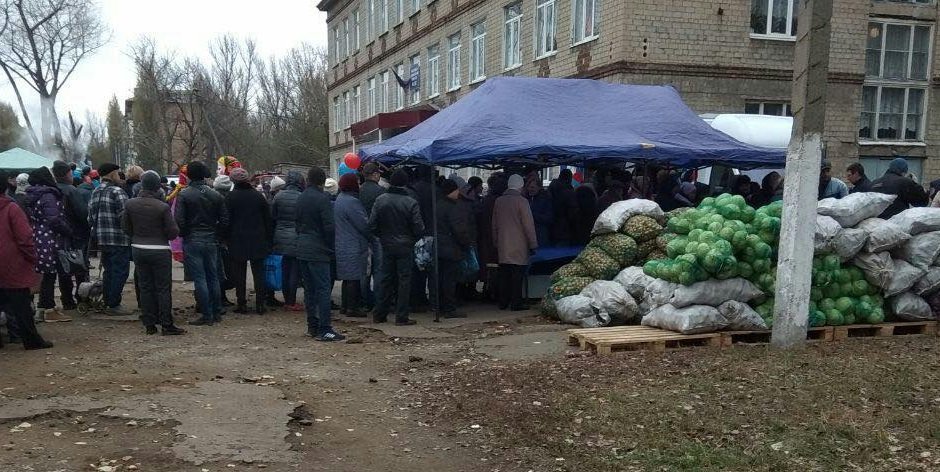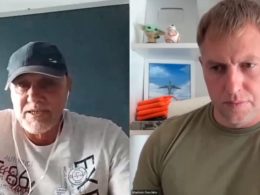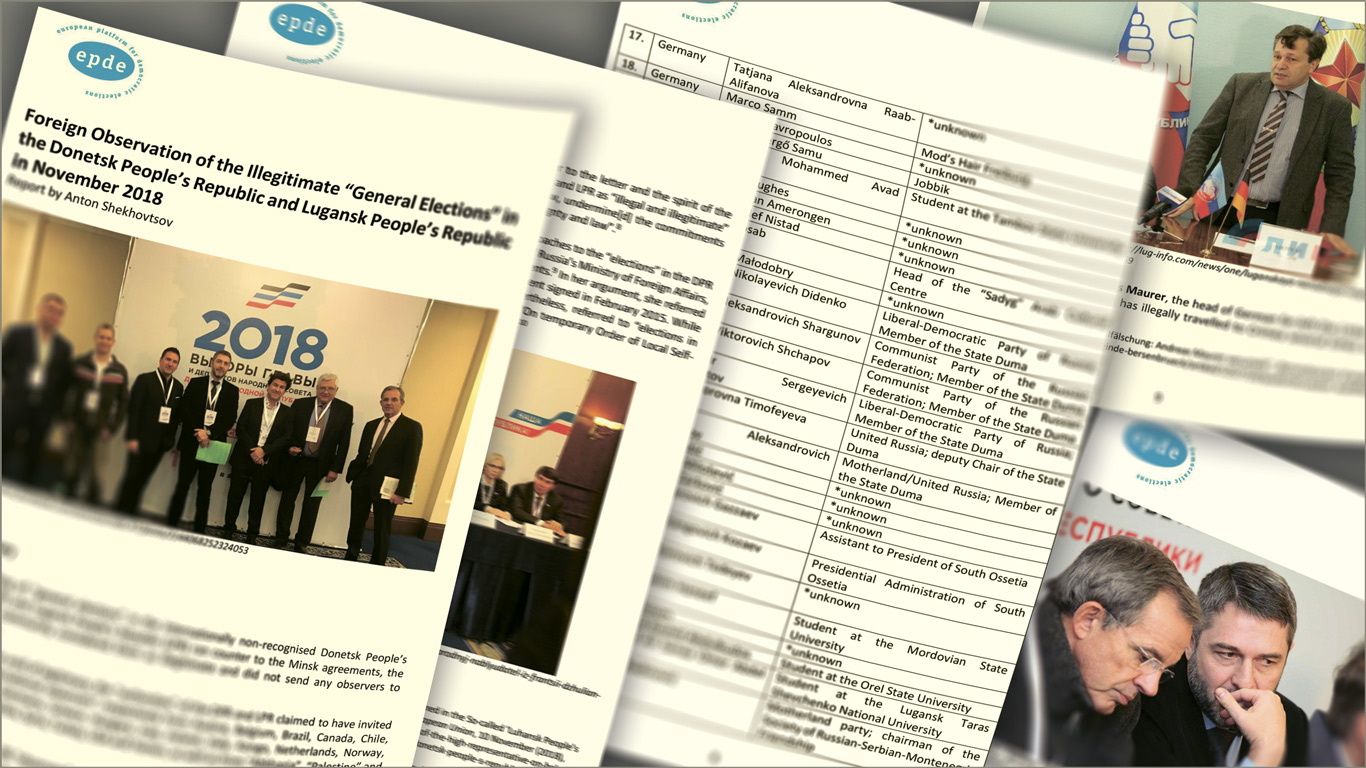President Putin today decided to recognize the "independence" of the regions in eastern Ukraine controlled by Russia-backed separatists "in the near future." Putin informed President of the French Republic, Emmanuel Macron, and Federal Chancellor of the Federal Republic of Germany, Olaf Scholz, in a telephone conversation this evening.
The heads of the EU and the European Commission called Russia's recognition of the DNR and LNR a violation of international law. EU foreign policy chief, Josep Borrell, had only hours earlier told reporters in Brussels that the bloc was "ready to react with a strong united front" if Russia were to recognize the two territories.
What does President Putin's decision mean for the hybrid war that has been ongoing for 8 years already?
After “hour of imperialism and chauvinism” Putin recognizes his Donbas puppets, sends in troops
A new phase in the hybrid war
Amid a military escalation along the frontline in the Donbas, an unprecedented military build-up along the borders of Ukraine and intelligence of an imminent new Russian assault, it is crucial to remember that the battlespace of the Hybrid War occurs in the mind. The battlefield has moved from the physical domain to the cognitive sphere aiming to destabilize, create fear, and pressure Ukraine and the West into making concessions.
The fact that it has demonstrated the will and ability to use military power to achieve its strategic objectives on multiple occasions already reinforces our assessments of a credible imminent threat.
I have previously assessed the likelihood of a full-scale invasion
as low. The assessment is supported by the Center for Defense Strategies. That’s not to say that it is off the table, but rather that it runs counter to both Russian interests and its hybrid war strategy.
The present strategy was chosen for several reasons, many of which make a full-scale invasion and an occupation of Ukraine unlikely. Not because it cannot be done – because it can – but because it’s not needed, it is counter-productive, very costly, and extremely risky.
I believe, however, that an escalation of the military element of the hybrid war is imminent.
I have long argued that a "humanitarian intervention" in Donbas as a very likely scenario. Russia has already conducted several operations based on "Responsibility to Protect" (R2P). The humanitarian crisis in the temporarily occupied territories of the Donetsk and Luhansk oblasts (and therefore, the Russian intervention) has been in the making for more than seven years already. Russian “passportification” started there in 2019 already, turning Ukrainians into “Russian citizens.”
Russia has not only caused a dire and deteriorating humanitarian situation
but also conducted an intensive disinformation operation depicting Ukraine as being responsible for the atrocities.
Russia actively builds a case to justify a "humanitarian intervention"
Having tracked recent Russian statements, disinformation, false flag operations, and military dispositions, the assessment has over time become strengthened. The following false allegations and disinformation have been presented to justify a “humanitarian intervention”:
- False: According to Russia, Kyiv does not intend to implement the Minsk Package, implying the possibility of a peaceful resolution of the conflict is coming to an end. According to President Putin, there is "no prospect" of a peace plan to end the conflict in eastern Ukraine.As a consequence, President Putin today decided to recognize the "independence" of the regions in eastern Ukraine controlled by Russia-backed separatists. This was said to come after the leadership of the "DNR" and "LNR" appealed for recognition of “their sovereignty in connection with the military aggression of the Ukrainian authorities, massive shelling of the territory of the Donbas, as a result of which the civilian population suffers” (although evidence suggests the episode was pre-recorded).
The decision means that the Minsk Agreement is effectively dead. Russia has recently increasingly expressed frustration at the West’s lack of pressure on Ukraine to accept the Russian interpretation of the peace agreement. Acceding to this interpretation would have led to the loss of Ukrainian sovereignty and independence as it would allow pro-Russian forces to veto any attempt to align Ukraine to the EU and NATO. The regions would be able to stop any reforms not supporting the interests of the Russian Federation. Having lost this tool, means, however, that Putin will adapt his strategy and escalate militarily.
- False: According to Russia, Ukraine has attacked Russia twice, including the destruction of a Russian border facility in the Rostov region.
- False: According to Defense Minister Sergey Shoigu, Ukraine is preparing for major provocations or the use of force to solve the Donbas problem. Ukraine has amassed 120.000 troops in eastern Ukraine in preparation to invade the territories of "DNR" and "LNR."The idea is outright ludicrous given the presence of 169,000-190,000 Russian troops “along the border, in Belarus, and in occupied Crimea; Russian National Guard and other internal security units deployed to these areas; and Russian-led forces in eastern Ukraine.” Especially in light of Ukraine’s critical vulnerabilities (Navy and Air Force) and the more than 30 Russian warships operating in the Sea of Azov and the Black Sea, and the about 500 fighters and fighter-bombers, as well as 50 medium and heavy bombers within reach of Ukraine.
- False: According to Russia, the Armed Forces of Ukraine is shelling residential areas, triggering an investigation by the Investigative Committee of the Russian Federation. This includes “testimonies of victims of the actions of Ukrainian military personnel, witnesses and eyewitnesses”.
- False: According to Russia, there is a genocide ongoing in the Donbas and Ukraine is exterminating the population in the Donbas. The Investigative Committee of the Russian Federation is investigating the presence of mass graves.
- False: According to Russia, Ukraine is engaged in subversive activities, sabotage, and attacks on vital infrastructure, including water supply system, gas pipelines, bridges, railway crossings, as well as places with a large crowd of people and government facilities.
- False: According to Russia, The impending Ukrainian offensive triggered a mass evacuation of civilians.
- False: According to Russia, it has the right to protect its citizens in the Donbas. “Russia does not want war, but it is ready to stand up for the citizens of the Russian Federation and compatriots in the Donetsk and Luhansk People's Republics if their lives are threatened.”
The (busted) info-ops driving Russia’s false-flag pretexts for invading Ukraine
Today, President Putin decided to deploy peacekeepers into Donbas. He ordered Defense Minister Sergey Shoigu to despatch Russian peacekeepers to eastern Ukraine's two breakaway regions.
Additionally, Putin also signed treaties on friendship, cooperation, and mutual aid with the leaders of the "DNR" and "LNR."
A humanitarian intervention might prove a popular move for Putin. A poll
from April 2021 shows that the majority (65%) reported that they supported the inclusion of the "DNR" and "LNR" into Russia if the republics were to request unification (33% definitely yes and 32% somewhat).
While President Putin today decided to recognize their independence (in the near future), the poll still indicates support for the so-called breakaway republics.
While most Russians are opposed to a major war, the support for intervention in the Donbas is higher.
The April 2021 poll from Levada Center showed that 43% believe Russia should intervene in a conflict (18% definitely yes, 25% somewhat supportive) while another 43% reported that Russia should not intervene.
Aiming to break the Ukrainian resistance to its demands, a humanitarian intervention based on Russian (or CSTO) “peacekeepers” on the ground, a No-Fly zone over eastern Ukraine and a maritime embargo might prove decisive. Additionally, it will put NATO unity to the test.
Related:
- Russia’s Hybrid War against Ukraine intensifies while military conflict remains low-intensity
- Russia need not invade Ukraine: it already got what it wanted
- Kyiv defense experts: Russian proxies may attempt to expand occupied territory
- The possible invasion is not the real issue. Russia’s new wave of destabilization needs a three-dimensional approach
- The (busted) info-ops driving Russia’s false-flag pretexts for invading Ukraine
- Russia need not invade Ukraine: it already got what it wanted

